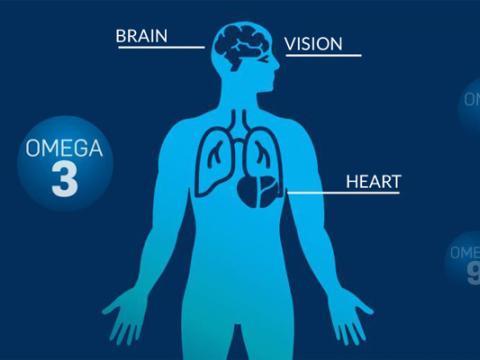Fatty acids belong to a group of molecules called lipids, commonly known as “fats”.
To make sure that your body functions as it should, you should check that you are getting the right balance of omega-3, -6 and -9 fatty acids from your diet.
Omega-9 fatty acids are monounsaturated, with the main one being oleic acid. Omega-6 and omega-3 are both polyunsaturated fatty acids. Their precursors are linoleic acid and alpha-linolenic acid, which the body can only obtain from dietary sources. These compounds are particularly found in certain vegetable oils. Precursor fatty acids activate enzymes that drive the biochemical reactions responsible for the synthesis of long-chain fatty acids such as EPA and DHA for omega-3, and GLA, DGLA and arachidonic acid for omega 6. However, this conversion process can be difficult to achieve.
Consequently, these long-chain fatty acids have to be obtained directly from a dietary source.
In some situations, an individual's diet does not satisfy the body's requirements. This is the case for someone who eats very little fish, for example.
Such deficiencies can cause a number of disorders:
- Low levels of DHA-type omega-3 can cause depression, low spirits or even memory problems
- Low levels of EPA-type omega-3 can cause cardiovascular pathologies
- And low levels of omega-3, -6 and -9 can cause skin problems
- Finally, low levels of omega-6 may be related to premenstrual syndrome.
In certain cases, a targeted supplementation with omega-3, omega-6 or a combination of omega-3, -6 and -9 may be useful.
For more information about your individual requirements, with due consideration of your own state of health, ask a health professional for advice.






